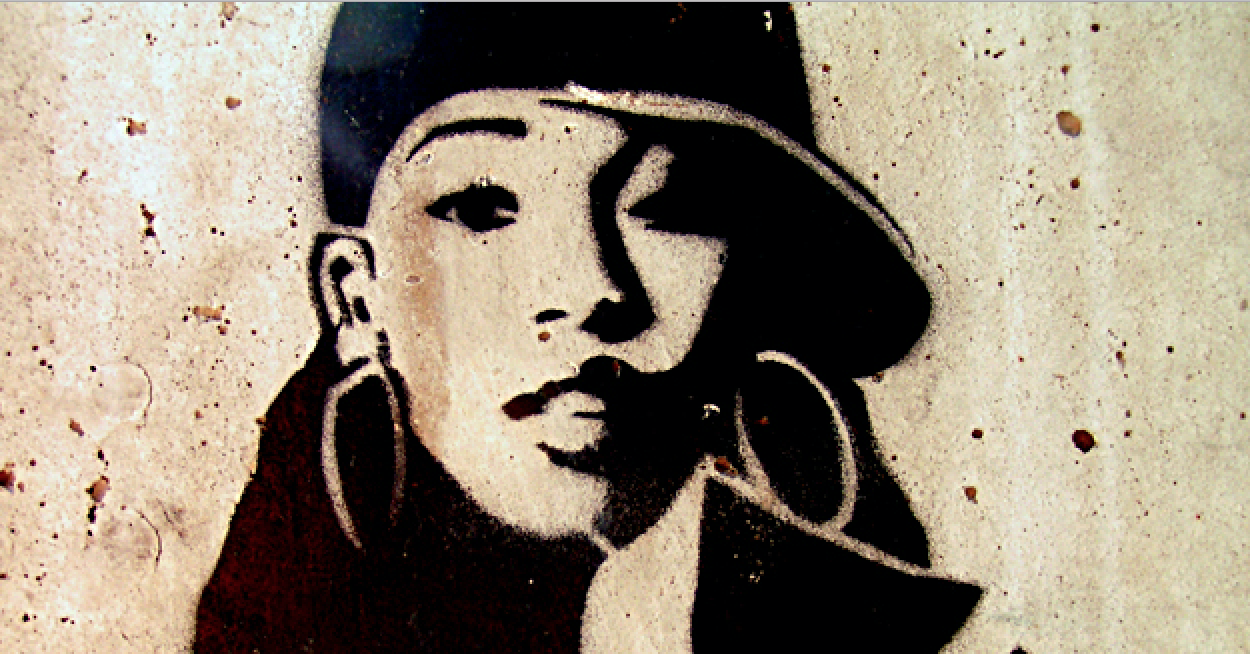Feature / In celebration of Missy Elliott

Bethany Marris celebrates the work of 'pioneer in her field', rapper, dancer, and producer Missy Elliott
Missy 'Misdemeanour' Elliott, charged with unapologetic, East-Coast zest, positively rumbled the hip-hop scene at a time it needed it most. Over two decades ago, 1997 saw the release of Supa Dupa Fly, a 17 track 'classic' that represented hope for a community dispirited by the painfully fresh deaths of two of the 'greatest ever' - Notorious B.I.G (March 1997) and Tupac Shakur (September 1996). Elliott was by no means a sole-female voice in the era of her rap come-up.
Yet to release The Miseducation, Lauryn Hill was rising from the Fugees, Lil' Kim was at the peak of her career, with her 1996 debut Hard Core reaching platinum in June 1997, and Foxy Brown was collaborating with the likes of Jay Z and Method Man. Yet in an interview with MTV in 1997, Missy declared that 'the radio is so stuck right now… So we comin in and we gonna change the whole thing'. And she did, with a helping hand from producer and schoolmate Tim Mosely, otherwise known as Timberland.
Preceding and foreshadowing Supa Dupa Fly was the fantastically bizarre video release of 'The Rain'. The Hype Williams-directed recording, through a fish-eye lens, exhibited Missy fashioned in a black, inflatable bin-bag-esque one piece, a head-to-toe citrus toned suit complete with neon high-tops, and a tangerine vinyl blazer/ waders two-piece. As intended, it set her apart. Missy wasn't aspiring towards 'sexy', nor was she adhering to society’s standards of beauty and femininity. Moreover, Elliott both projected and asserted her dominance in an incredibly masculine industry on 'I'm Talkin''. Flawlessly style-switching from the satirical, soulful croon of “My style of rappin / I'm such such a good rapper” on the chorus, to delivering seamless, spoken word verses over a mellow R&B beat.
'Best Friends', the tenth track on SDF is a sensitively composed ballad with the late Aaliyah. The track accentuates the importance of a strong, female support system, refreshingly elevating Missy above the traditionally bitter relations between ladies of hip-hop.
Elliott's significance as an international female icon does not solely reside in her debut, however. Since 1997, she has relentlessly produced track-after-track of empowering, refreshing and creative material, in a genre laced with misogyny and female objectification. Talking to Mary J. Blige, Missy emphasised that 'you have to be a student of music', with her hunger to learn translating in the versatility of her sound. As she affirmed in a 2016 interview, 'always music, that's pretty much all what Missy do', whether that be personal projects or pieces for other artists.
2001 saw the release of ‘Get Ur Freak On', an eastern-instrumental infused cry for individualism and nonconformity. Furthermore, 2002's 'Mommy' hollers and draws attention towards successful, breadwinning mothers, where 2005's 'Lose Control' serves as an unapologetic, no-nonsense statement of self-acceptance and body positivity.
25 years in, at the age of 46, Elliott remains a pioneer in her field. She has embraced, collaborated with and produced for a wealth of the most influential hip-hop and R&B artists of our time; from Pharrell and Janet Jackson to Beyoncé and Jay Z. In 2015, 20 years after she entered the game, she stormed the stage of the Super Bowl halftime extravaganza. Yet more importantly, in 2016, Dev Hynes of Blood Orange cemented the 'Misdemeanour' legacy on record; opening 'Freetown Sound' with a spoken-word ode to the artist. The poem, originally by Ashlee Haze, writes 'Dear Missy: I did not grow up to be you/ But I did grow up to be me/ And to be in love with who this woman is' - a glorious tribute which may resonate with us all.
Featured image: Linus Bohman
Are you a fan of Missy Elliott? Let us know...
Facebook // Epigram Music // Twitter


